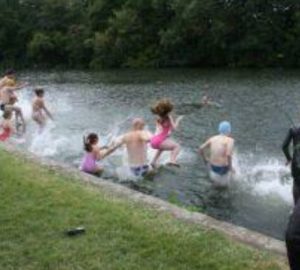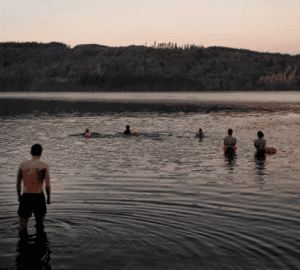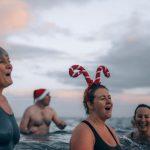New association launched for False Bay swims
False Bay, in South Africa, is the latest body of open water to get its own body to co-ordinate, officiate and promote swims across it.
The False Bay Swimming Association (FBSA) has been set up by a group of seasoned open water swimmers from Cape Town who have embarked on a mission to position the swim across False Bay as one of the most challenging and desirable swims in the world of marathon swimming. The False Bay Swim is a 34km open water swim and compares to the English Channel and other Oceans Seven swims around the world in terms of distance and conditions.
In line with marathon swimming internationally, The False Bay swim has its own rules and regulations with a strong focus on safety, to ensure the integrity of the crossing.
The vision of the association is to bring the marathon swimming world to Cape Town. “We believe the swim has all the required ingredients to be an epic international challenge,” says board member Ram Barkai. The FBSA is a non-profit association which will only focus on swims across the bay.
To date, only five swimmers have successfully swum solo across False Bay – three South Africans and two international swimmers. The first successful swim was completed by Belgium swimmer Annemie Landmeters in 1989, while the most recent crossing took place in 2012 by Irish swimmer Ned Denison. The average swim time is approximately 11 hours and the longest so far is 14 hours. The fastest male crossing was by Barend Nortje from South Africa in time of 9 hours 17 minutes and the fastest female crossing was by Carina Bruwer from South Africa in time of 10 hours 58 minutes.
The Association allows for various categories. There is the “elite skins” category where swimmers wear one swimming cap, goggles and a standard swimming costume in line with traditional marathon swimming rules around the world, and also a wetsuit category.
The crossing season can be any time during the year; however, swim windows are affected by weather conditions and the best windows are considered to be spring and autumn. Water temperature can vary from 11C to 20C, while unpredictable tides and currents can also pose a challenge to swimmers. Sharks are always a factor in the Cape waters, however, shark sightings have dropped significantly in recent years. The swim routes are located in deeper waters where sharks are less frequently sighted and the swimmers are required to have shark shields on the boats.
The newly established board consists of a team of experienced long distance and cold water swimmers, namely Ram Barkai, Sam Whelpton, Carina Bruwer, Kieron Palframan, Eddie Cassar, and Derrick Frazer. A list of accredited Pilots and Observers can be found on the website.
Find out more:









